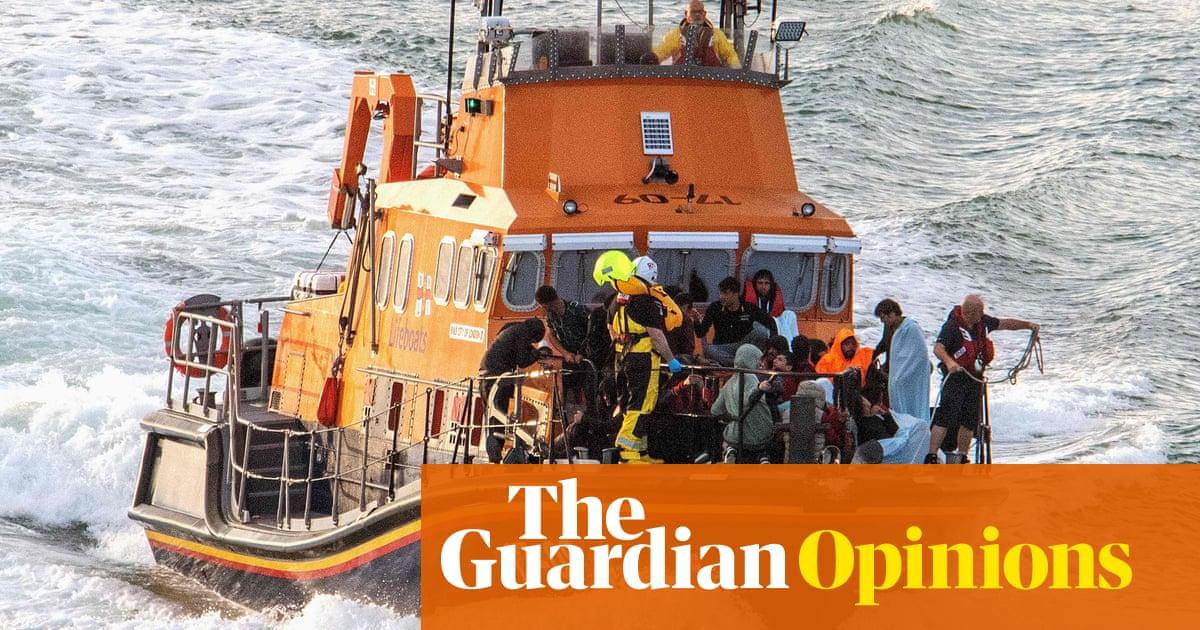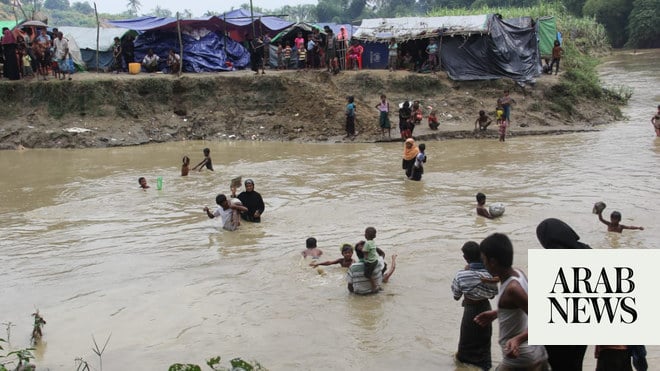
Afew months after Grace Ngo flew into Turkish-occupied northern Cyprus from her native Cameroon, she decided to head “for the west”. Smugglers pointed the student in the direction of the Venetian walls that cut through the heart of Nicosia, Europe’s last divided capital.
A little before midnight on 24 May, Ngo leapt from the breakaway Turkish Cypriot republic into what she hoped would be the war-divided island’s internationally recognised Greek south.
“I just said ‘God protect me,’” the 24-year-old recalled, describing the jump that instead landed her in the UN-patrolled buffer zone, where she has been stranded ever since. “The walls were so high. I hurt my leg quite badly but I was desperate for the west.”
Daniel Djibrilla and Emil Etoundi, two other asylum seekers from Cameroon’s English-speaking minority, were at the same spot that night, equally drawn by the bright lights of the European metropolis beyond. Like Ngo, who says she would not have made the journey had she not been the victim of abuse, both cited Cameroon’s civil war as their reason for leaving home.
“We jumped from over there,” says Etoundi, a former soldier, pointing across the ceasefire line that has partitioned the ethnically split island since Turkey invaded in 1974 after a coup aimed at uniting Cyprus with Greece. “We had no idea this was no man’s land. I can’t believe it.”
After the refusal of President Nicos Anastasiades’ government to allow them to apply for asylum, the three Cameroonians remain trapped in the buffer zone, protected by the UN refugee agency, UNHCR, but living in tents and at the mercy of others’ goodwill.
At the height of the 2015 Syrian refugee crisis, Cyprus remained relatively unvisited by displaced people, as the majority headed through Turkey and the Aegean islands en route to Europe.
That changed in 2018, when smugglers began to see the EU’s easternmost state as an easy drop-off.
On 21 May, Anastasiades’ administration declared a state of emergency, with officials saying the Mediterranean island faced insurmountable pressures from continuing arrivals. It came after Cyprus was censured by a human rights watchdog amid allegations of illegal pushbacks of migrants at sea.
In late 2020, close to 20,000 asylum applications were pending, according to the Greek Cypriot authorities. A record 13,648 people requested protection in 2019. In the first six months of 2021, more than 5,000 claims had been made, more than half the total in 2020.
Cyprus has the highest per capita number of first-time asylum seekers in the EU, according to the EU’s statistics agency, Eurostat.
“We are in a critical situation,” the interior minister, Nicos Nouris told the Guardian ahead of a EU summit in Slovenia on Thursday. “All the [reception] centres are full and we simply don’t have the capacity to receive more. If we want to talk about solidarity and responsibility, we have to stand by frontline member states like Cyprus, which is the top-receiving country in asylum seekers.”
The majority of migrants entering the Greek south are smuggled illegally through Turkey and areas of Cyprus over which the republic has no control, according to Nouris.
With smuggling networks taking advantage of partition, Nouris said there were genuine fears of a new front being opened on an island where migrants arrive both by boat and along the whole 110 mile (180km) ceasefire line.
“We have to be very careful not to open a new passage,” he says. “It’s not a matter of three people – that would be ridiculous when so many are coming. But if I accept these three people, then [such crossings] will be the next common practice. They’ll be coming by the thousands … Turkey will put them on buses and send them to the checkpoints.”
The Cameroonians’ plight has illuminated the tough stance of a government that, like Greece, feels abandoned by Europe on migration.
“They have the right to have their asylum claims examined,” says the UN refugee agency’s spokeswoman, Emilia Strovolidou, explaining that the trio were returned to no man’s land after approaching a UN patrol unit and going to the nearest Greek Cypriot checkpoint.
“This is a clearcut case of people asking for international protection, and we have made a number of interventions with the competent authorities in an effort to allow them to access the procedure.”
Cyprus is “obliged under international, EU and national law” to process asylum requests and give people access to dignified conditions in reception centres, Strovolidou says, adding: “Their living conditions – right now, in tents, in the sweltering heat – are totally unsuitable.”
Asylum seekers have been stranded in the buffer zone before but none for so long. The near two-month saga has led human rights organisations to accuse the government of inflating the number of arrivals and generating a climate of fear based on xenophobia and anti-immigration hysteria fuelled by the rise of the far-right Elam party.
On an island reliant on low-skilled labour, aid organisations contend that it is often foreigners already in Cyprus on student or work visas who apply for asylum in an attempt to prolong their stays legally.
Corina Drousiotou, at the Cyprus Refugee Council, says migrants keep the agriculture sector alive. “Despite the fact that Cyprus’s economy heavily depends on low-skilled foreigners, the vast majority of whom work in harsh conditions with low salaries and next to zero rights, there is no political willingness to properly address those issues,” she says.
“A complete overhaul of the [asylum] system is required to ensure dignity and equal rights for all, which in turn will have multiple benefits for many industries and the local society.”
For Ngo, Djibrilla and Etoundi, the prospect of any job would be welcome. But as temperatures exceed 40C (104F), the Cameroonians are left anxiously awaiting news under the shade of a strip of trees planted along a thin gravel strip barely a metre wide.
“I’m 33. I [deserted] the military after 10 years,” says Etoundi, as Djibrilla plays a gruesome video on his mobile phone showing decapitations in his country’s conflict. “I do not support the [Cameroonian] separatists’ fight, but I had to leave because I did not agree with what the military were asking us to do. If I go back, I will face death.”
Cyprus’s interior minister says the case could be resolved if the EU agreed to include the island in a reallocation programme.
“I have written to the European Commission, saying we are prepared to transfer them to other member states, but have not heard back,” says Nouris. “If that were to happen, this could so easily be solved.”
The surnames of Grace, Emil and Daniel have been changed












